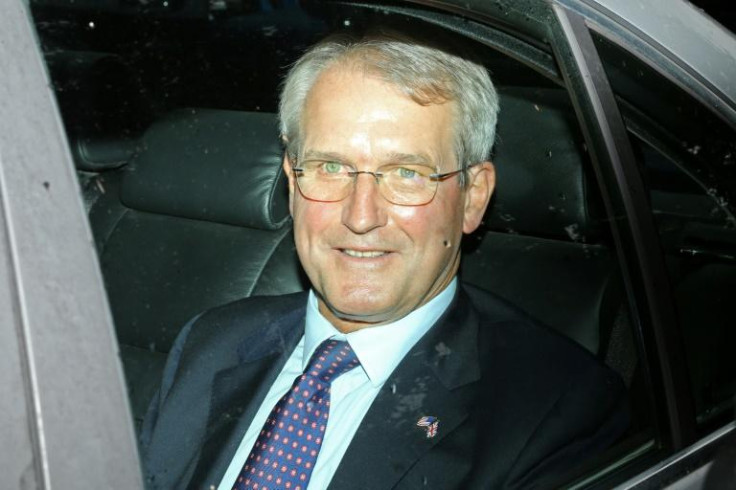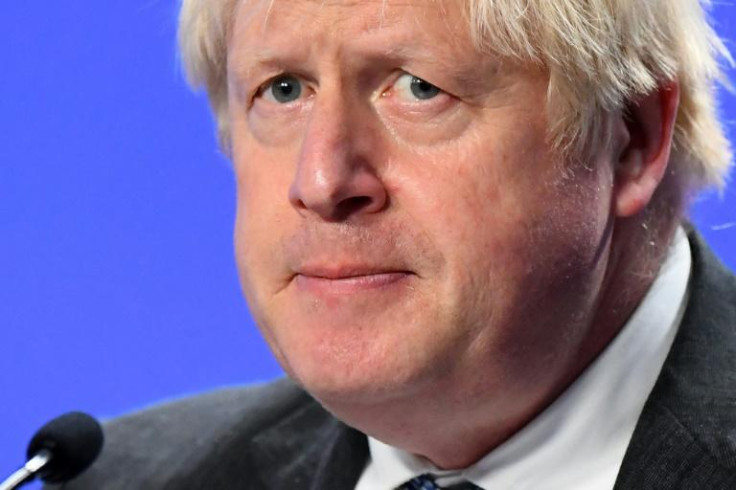Johnson insists UK not corrupt despite second job MP scandal
Johnson, whose poll ratings have slumped in recent days, is himself facing questions about who paid for recent holidays he took to the Caribbean and Spain
Prime Minister Boris Johnson on Wednesday dismissed claims that corruption was rife in Britain, as his ruling Conservative party was embroiled in a slew of high-profile sleaze allegations about MPs with second jobs.
Revelations that former attorney general Geoffrey Cox used his parliamentary office for lucrative private work have triggered a standards inquiry, even as he maintained he had not broken any rules.
It came after Johnson last week tried -- and failed -- to change the rules on sanctioning errant MPs, when another Tory MP, Owen Paterson, was found to have lobbied ministers for two firms that had him on the payroll.

Both cases have opened up MPs to renewed scrutiny about potential conflicts of interest, more than a decade after a scandal over expenses that caused public anger and prompted a string of resignations.
But Johnson told reporters on a flying visit to the UN climate change summit in Glasgow: "I genuinely believe that the UK is not remotely a corrupt country. Nor do I believe that our institutions are corrupt."
MPs who break the rules should face the "appropriate sanction", he said, adding in response to a question from AFP that in his own case, "all my declarations are in conformity with the rules".

Johnson, whose poll ratings have slumped in recent days, is himself facing questions about who paid for recent holidays he took to the Caribbean and Spain, as well as the expensive makeover of his Downing Street flat.
There have also been repeated claims of cronyism during the coronavirus pandemic in the awarding of multi-million-pound contracts without following tendering rules.
The Tory party is similarly facing calls to explain how and why it routinely offered wealthy donors who gave more than ?3 million ($4 million) seats in the unelected upper chamber House of Lords.

In the House of Commons, Cox broke his silence on the claims against him, insisting he always gave constituency work "primary importance" and said he would accept the judgment of parliamentary standards watchdogs now probing his case.
"He does not believe that he breached the rules but will of course accept the judgment of the Parliamentary Commissioner or of the Committee on the matter," his office said in a statement.
The senior lawyer reportedly earned more than ?1 million ($1.4 million) in the last year for legal work, while still collecting his annual MP's salary of around ?82,000.
He netted the sums in part for advising the government of the British Virgin Islands, a UK overseas territory and tax haven accused of corruption, the Daily Mail reported.
Paterson, a former environment secretary, quit after Johnson abandoned an attempt to force through a change to parliament's internal disciplinary process, to prevent a 30-day suspension and a possible by-election.
He had been found guilty of repeatedly lobbying ministers and officials on behalf of two companies paying him more than £100,000 a year.
British lawmakers are permitted to hold second jobs, so long as they declare them, but are not allowed to use their parliamentary offices or resources for such work.
On Wednesday, a video emerged appearing to show Cox -- who has represented a safe seat in Devon, southwest England, since 2005 -- undertaking his private work from his Westminster office in September.
The 61-year-old Tory also used changes to parliamentary attendance rules brought in during the pandemic to vote remotely in the House of Commons from the Caribbean while working there.
Cox's office said he had consulted the Conservatives' chief whip -- another MP charged with enforcing party discipline -- and "was advised that it was appropriate" to do so.
It also argued he "regularly works 70-hour weeks and always ensures that his casework on behalf of his constituents is given primary importance and fully carried out".
Ultimately it was up to voters to decide on his suitability to serve as MP, it added.
Copyright AFP. All rights reserved.
© Copyright IBTimes 2025. All rights reserved.





















